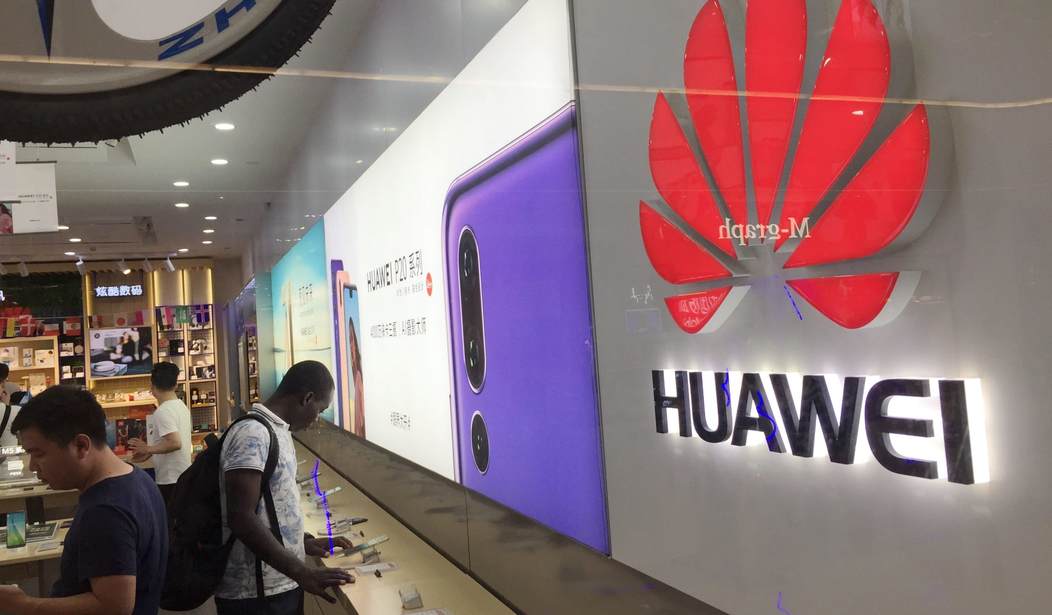WASHINGTON — Sen. Marco Rubio (R-Fla.), one of the lawmakers on the bipartisan team that has been fighting to block President Trump’s lifeline to Chinese telecom giant ZTE, warned Education Secretary Betsy DeVos that university partnerships with Huawei can similarly pose a national security threat.
Rubio and Rep. Jim Banks (R-Ind.) noted in a letter to DeVos that Huawei Technologies, “a ‘national champion’ of the People’s Republic of China, has formed a series of research partnerships with over 50 universities in the United States that threaten national security.”
Huawei describes the Huawei Innovation Research Program (HIRP) as providing “funding opportunities to leading universities and research institutes conducting innovative research in communication technology, computer sciences, engineering, and related fields.”
“We believe these partnerships may pose a significant threat to national security and this threat demands your attention and oversight,” Rubio and Banks wrote, adding that myriad threats “require a whole-of-government solution to a whole-of-society challenge directed by the Chinese Communist Party.”
FBI Director Christopher Wray told a Senate Intelligence Committee hearing in February 2018 that he was “deeply concerned about the risks of allowing any company or entity that is beholden to foreign governments that don’t share our values to gain positions of power” as it “provides the capacity to conduct undetected espionage.”
Rubio and Banks cited Wray and other officials, and attached for DeVos’ review an unclassified chart provided by the National Intelligence Council detailing how research partnerships with U.S. universities are key in “China’s Toolkit for Foreign Technology Acquisition.”
“We urge that you promptly request a complete and classified briefing by the Federal Bureau of Investigation and the Director of National Intelligence on Huawei and Chinese technology acquisition modalities in general (as the technology transfer problem set is bigger than Huawei). We further urge that the Department of Education immediately request (and require) information from the U.S. universities involved in any partnership with Huawei, especially those receiving any federal research funding (including Department of Defense funding) to gather information related to whether any such funding is involved in a Huawei partnership, and whether any research personnel (including Chinese nationals who may be involved in a so-called ‘Talents’ program) are involved in these efforts,” they wrote. “Lastly, we request you immediately convene a senior-level working group to understand how the People’s Republic of China attempts to gather U.S. technology on U.S. university and college campuses and to develop recommendations (especially for those institutions that receive any kind of federal funding) for protecting the U.S. technology advantage.”
“Looking forward, we ask that your Department work together with the Department of Defense, the Department of Homeland Security, and the Intelligence Community to protect U.S. national security.”
On Monday, the Senate passed 85-10 the National Defense Authorization Act that included an amendment blocking Trump from granting relief to ZTE.
The Commerce Department earlier this month announced a deal to pull ZTE out from under the weight of sanctions, after Trump in May vowed to help the telecom company, which has been the subject of equipment bans for suspected espionage as well as a violator of Iran and North Korea sanctions, get back on its feet.
Top officials from the CIA, NSA, FBI and the Defense Intelligence Agency testified at a Senate Intelligence Committee hearing in February that smartphones made by Huawei or ZTE posed a security risk. The Pentagon recently banned U.S. bases from selling Huawei and ZTE devices in retail stores, as they “may pose an unacceptable risk to the department’s personnel, information and mission.”
In April, Commerce Secretary Wilbur Ross announced that his department’s Bureau of Industry and Security imposed a denial of export privileges against ZTE. The company agreed to a combined civil and criminal penalty and forfeiture of $1.19 billion in March 2017 after illegally shipping telecommunications equipment to Iran and North Korea, making false statements, and obstructing justice. This year, the Commerce Department discovered that ZTE made false statements to BIS during the settlement period and during the 2017 probationary period.
Also, in 2016, ZTE was found to have been one of the manufacturers behind carefully concealed backdoor spyware placed on more than 700 million Android phones.
On May 13, Trump tweeted, “President Xi of China, and I, are working together to give massive Chinese phone company, ZTE, a way to get back into business, fast. Too many jobs in China lost. Commerce Department has been instructed to get it done!”
Ross later announced that ZTE “agreed to severe additional penalties and compliance measures to replace the U.S. Commerce Department’s Bureau of Industry and Security (BIS) denial order imposed as a result of ZTE’s violations of its March 2017 settlement agreement.”
The department said that the “purpose of this settlement is to modify ZTE’s behavior while setting a new precedent for monitoring to assure compliance with U.S. law.”
Lawmakers swung into action to block the move, with Rubio and Sens. Tom Cotton (R-Ark.), Chris Van Hollen (D-Md.), and Chuck Schumer (D-N.Y.), along with co-sponsors Richard Blumenthal (D-Conn.), Susan Collins (R-Maine), and Bill Nelson (D-Fla.), introducing an amendment to the NDAA that would restore penalties on ZTE for violating export controls.









Join the conversation as a VIP Member